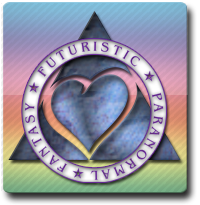This morning, on the way back from the rec center, I saw a gull and a crow meet in the middle of the road. In the parking lot to my right, a murder of crows milled about. To the left, a flock of gulls circled the greening field. The two seemed to be ambassadors meeting in neutral territory, stark black touching beaks to snow white. They scattered when I drove through. Another delicate negotiation disrupted by encroaching technology.
David is staying home sick today. Unfortunately a woman in his lab was in Texas last week, in the Austin/Houston area, and is now sick with a severe respiratory flu. She came to work anyway at the beginning of the week, though the manager has now asked her to stay home for the rest of the week.
We don't know that it's swine flu, but we don't know that it's not. She says she doesn't think it is.
Scientifically, it's interesting to watch a pandemic begin. And they've caught this one pretty early, so we get to watch the spread. I've been taken aback the last few days at the extreme measures being taken: New York closing schools, Texas cancelling the end of year athletic events. They're concerned, David says, because of the way the virus is mutating. Maybe so fast and in such a way that many people's immune systems will be unable to handle it.
We're so blase about flu now. It comes and goes. Maybe someone really old dies from it. It's easy to look on the statistic that the flu pandemic of 1918-1919 killed about 50 million people worldwide and think of that as the bad old days. They were ignorant then, and had nothing compared to the kind of health technology we have now. Maybe there's something to that. If medical help is gotten.
I remember when I was in grad school, a college student died in her trailer of the flu. Just an ordinary flu. But she lived alone and didn't tell anyone she was sick and the fever killed her.
This situation is not an ordinary flu either. What a virus "wants" is to take over your cells and use them to manufacture a whole lot more of itself. Thus killing the host is not in the virus' best interests. But a new virus is like a rampaging toddler -- a newly mutated virus tends to kill its hosts through sheer clumsiness, if you will. Over time, the virus adapts to merely using and abusing the host until it's run its course.
That's where we are right now with this new pandemic: the terrible two's. But it looks and feels just like pretty much any other flu on the surface.
Maybe what she has isn't swine flu and she hasn't infected everyone in her workplace with a highly virulent and contagious new flu. The thing is, we're always scanning the sky for the glamorous terror, the obvious threat. Sometimes it's just quietly puttering around your feet.


































